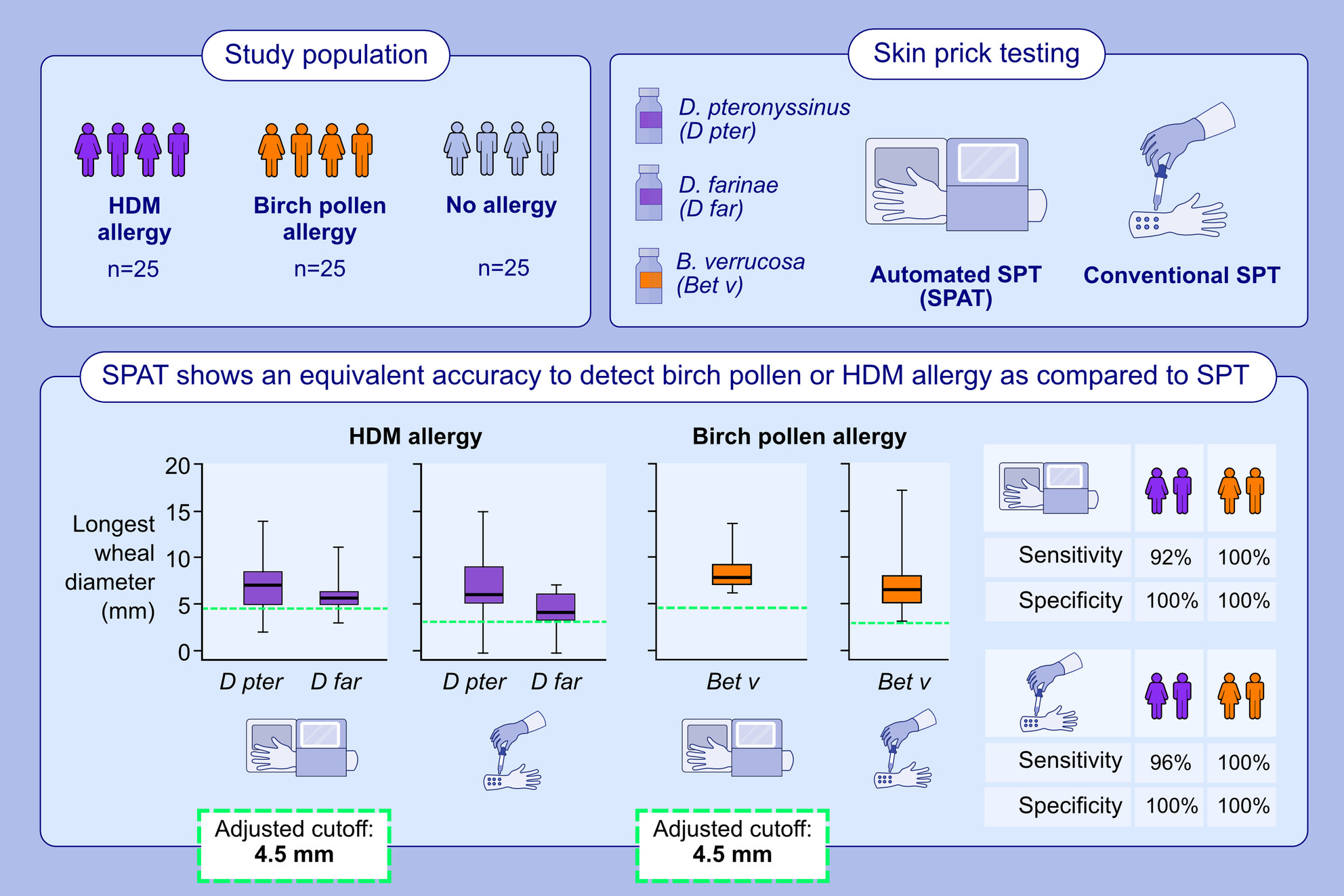Sensitisation patterns and burden of uncontrolled respiratory allergy symptoms in military personnel
Gorris S, Baron I, De Brouwer J, Vanden Daele A, Verstraelen J, Loeckx D, Bousquet J, Van Gerven L, Seys SF
Military personnel are often deployed around the world and may be exposed to new environments filled with unfamiliar plants, trees, dust, and insects. These exposures can trigger allergies, especially in people who are naturally more sensitive. This study looked at how common respiratory allergies are among Belgian soldiers and how well those allergies are being managed.
Researchers tested 160 soldiers for allergic reactions to 22 common airborne allergens (like pollen, dust mites, and mold) using an automated skin prick test device. The soldiers also filled out questionnaires about their symptoms, medication use, and places they had been deployed to (such as the Middle East, Africa, Europe, or the USA).
The results showed that about half of the soldiers were sensitive to at least one allergen, and nearly 30% were sensitive to several (polysensitisation). Common triggers included dust mites, grass pollen, and tree pollen, but also some allergens uncommon in Belgium, such as Bermuda grass and cockroach proteins.
Interestingly, over a quarter of soldiers who were not taking allergy medication still had uncontrolled symptoms, like sneezing, itchy eyes, and nasal congestion. Even among those on medication, many still reported poor symptom control. Uncontrolled allergies can interfere with sleep, focus, and physical performance—key elements for effective military duty.
Importantly, the study found that testing with an automated skin prick device was efficient, standardized, and easy to use, suggesting it could be added to routine health screenings for military personnel. This would help catch allergy issues early and improve treatment plans.
In short, many soldiers suffer from untreated or poorly managed allergies, which could affect their readiness and safety during missions. Better allergy screening—especially using broader allergen panels—can help ensure our military forces stay healthy and fit for duty, no matter where they’re sent.
Read the full article: Full article here

Get in touch
Do you need more information? Are you interested in a live demonstration? Or would you like to give us feedback? We would love to hear from you.




